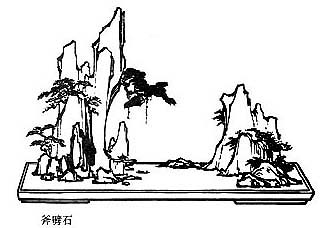Lun Yu 
 – Les Entretiens de Confucius
– Les Entretiens de Confucius
Le Maître échange propos, anecdotes, brèves paraboles et maximes avec ses disciples. Tr. Couvreur (fr), Legge (en) et Lau (en).
Lunyu XIII. 20. (337)
Tzeu koung demanda ce qu'il fallait faire pour mériter d'être appelé gentilhomme. Le Maître répondit : « Celui-là mérite d'être appelé gentilhomme qui dans sa conduite privée a le sens de l'honneur et, dans les missions qui lui sont confiées en pays étrangers, ne déshonore pas le prince qui l'a envoyé. »
Tzeu koung dit : « Permettez-moi de vous demander quel est celui qui vient immédiatement après le gentilhomme. – C'est, répondit Confucius, celui dont la piété filiale est attestée par tous les membres de la famille, et dont le respect pour les aînés est loué par tous les habitants du bourg et tous les voisins. » Tzeu koung dit : « Permettez-moi de vous demander quel est celui qui vient au troisième rang. » Confucius répondit : « Un homme fidèle à sa parole, et qui mène à bien ses actions. Même s'il fait montre de l'opiniâtreté propre aux gens de peu, il peut, cependant, être placé au troisième rang. »
Tzeu koung dit : « Que faut-il penser de ceux qui administrent à présent les affaires publiques ? » Le Maître répondit : « Hélas ! Du menu fretin qui ne mérite même pas d'être compté ! »
Couvreur XIII.20.
Different classes of men who in their several degrees may be styled officers, and the inferiority of the mass of the officers of Confucius's time.
1. Tsze-kung asked, saying, "What qualities must a man possess to entitle him to be called an officer? The Master said, "He who in his conduct of himself maintains a sense of shame, and when sent to any quarter will not disgrace his prince's commission, deserves to be called an officer."
2. Tsze-kung pursued, "I venture to ask who may be placed in the next lower rank?" And he was told, "He whom the circle of his relatives pronounce to be filial, whom his fellow villagers and neighbors pronounce to be fraternal."
3. Again the disciple asked, "I venture to ask about the class still next in order." The Master said, "They are determined to be sincere in what they say, and to carry out what they do. They are obstinate little men. Yet perhaps they may make the next class."
4. Tsze-kung finally inquired, "Of what sort are those of the present day, who engage in government?" The Master said "Pooh! they are so many pecks and hampers, not worth being taken into account."
Legge XIII.20.
Tzu-kung asked, 'What must a man be like before he can be said truly to be a Gentleman?' The Master said, 'A man who has a sense of shame in the way he conducts himself and, when sent abroad, does not disgrace the commission of his lord can be said to be a Gentleman.'
'May I ask about the grade below?'
'Someone praised for being a good son in his clan and for being a respectful young man in the village.' 'And the next?' 'A man who insists on keeping his word and seeing his actions through to the end can, perhaps, qualify to come next, even though he shows a stubborn petty-mindedness.' 'What about men who are in public life in the present day?' The Master said, 'Oh, they are of such limited capacity that they hardly count.'
Lau [13:20]

Les Entretiens de Confucius – Lun Yu XIII. 20. (337) – Chinois off/on – Français/English
Alias the Lunyu, the Lun Yü, the Analects, les Entretiens du maître avec ses disciples.
Le Canon des Poèmes, Les Entretiens, La Grande Étude, Le Juste Milieu, Les Trois Caractères, Le Livre des Mutations, De la Voie et la Vertu, 300 poèmes Tang, L'Art de la guerre, Trente-six stratagèmes
Bienvenue, aide, notes, introduction, table.
Index – Contact – Haut de page























